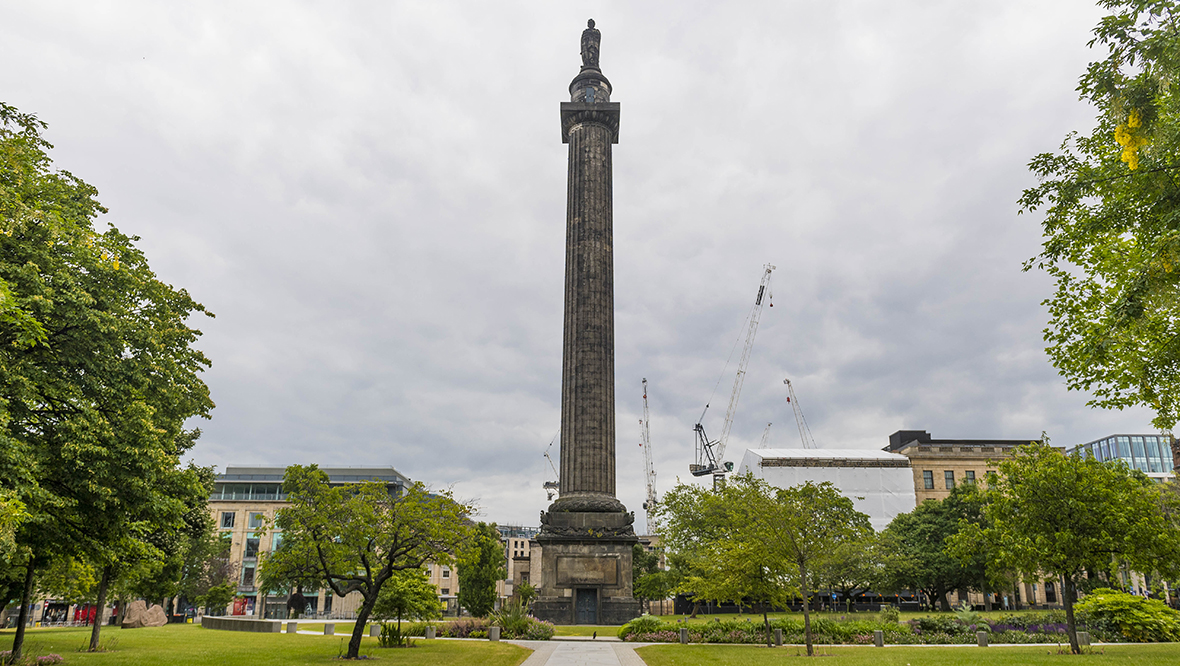Edinburgh City Council has approved plans to add a plaque to the Melville Monument – denouncing Henry Dundas’ role in deferring abolition of the slave trade and his role in expanding the British Empire.
The Category A-listed monument in St Andrew Square, in the heart of New Town, is one of the most prominent landmarks in the capital.
The monument pays tribute to Henry Dundas, the 1st Viscount Melville, the trusted right hand man of Prime Minister William Pitt and at one time the most powerful politician in Scotland.
He was instrumental in the Scottish Enlightenment, the prosecution of the French Revolutionary Wars and British colonial expansion in India.
However, Dundas is a controversial figure in Scottish history, due to his role in subjugating indigenous populations in the British Empire and for his part in delaying the abolition of the slave trade.
As first lord of the admiralty, Dundas deliberately prolonged slavery to protect the elite in the 1800s – forcing about 630,000 slaves to wait more than a decade for their freedom.
In June 2020, during a Black Lives Matter demonstration in the city, the monument was vandalised.
Now, Edinburgh City Council’s development management committee has approved the installation of a plaque on the Melville Monument that will outline his misdeeds.
The planning application for the plaque attracted over 2200 comments from members of the public.
The plaque reads: “At the top of this neoclassical column stands a statue of Henry Dundas, 1st Viscount Melville (1742-1811).
“He was the Scottish Lord Advocate, an MP for Edinburgh and Midlothian, and the First Lord of the Admiralty.
“Dundas was a contentious figure, provoking controversies that resonate to this day.
“While Home Secretary in 1792, and first Secretary of State for War in 1796 he was instrumental in deferring the abolition of the Atlantic slave trade.
“Slave trading by British ships was not abolished until 1807. As a result of this delay, more than half a million enslaved Africans crossed the Atlantic.
“Dundas also curbed democratic dissent in Scotland, and both defended and expanded the British empire, imposing colonial rule on indigenous peoples.
“He was impeached in the United Kingdom for misappropriation of public money, and, although acquitted, he never held public office again.
“Despite this, the monument before you was funded by voluntary contributions from British naval officers, petty officers, seamen, and marines and was erected in 1821, with the statue placed on top in 1827.
“In 2020 this plaque was dedicated to the memory of the more than half-a-million Africans whose enslavement was a consequence of Henry Dundas’s actions.”
Story by local democracy reporter Joseph Anderson
Follow STV News on WhatsApp
Scan the QR code on your mobile device for all the latest news from around the country


 SNS Group
SNS Group

























